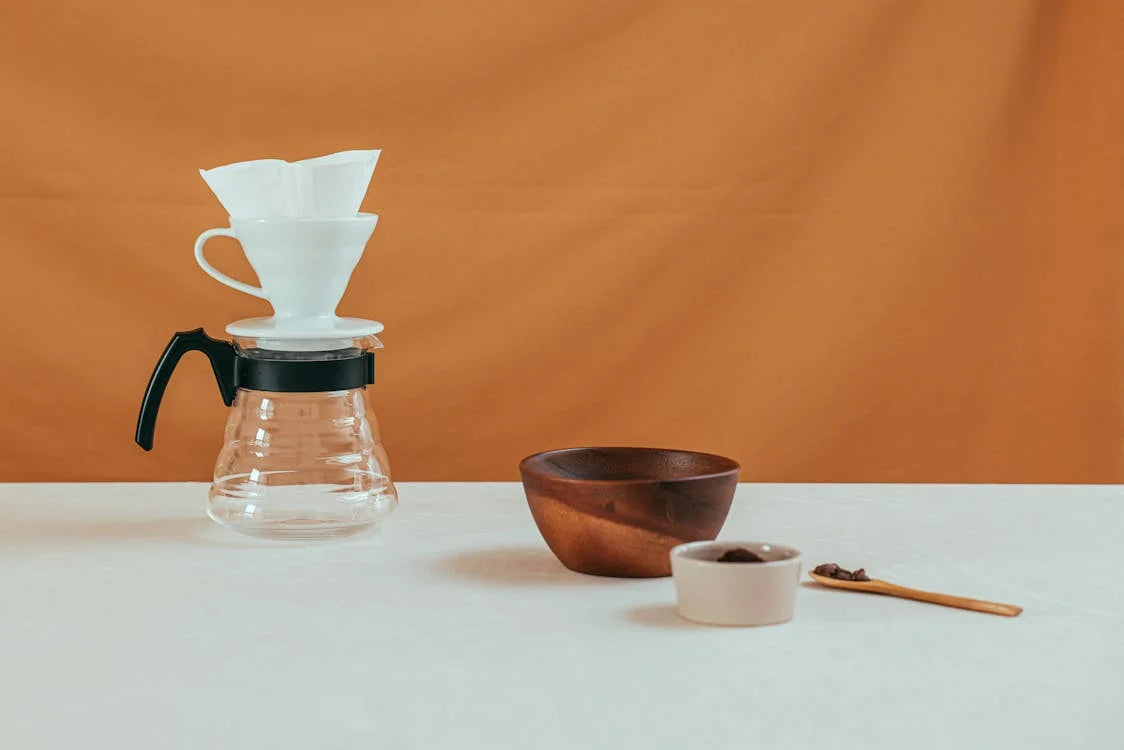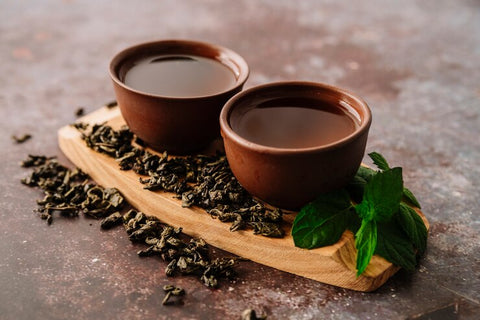
All About Kava Drinks and Their Anxiety Reducing Effects
Table of Contents
- What is Kava Drink?
- Kava Drink Effects
- The Anxiety-Reducing Effects of Kava
- How to Use Kava for Anxiety
- Benefits of Kava Beyond Anxiety Reduction
- Potential Side Effects and Considerations
- Conclusion
- FAQ
In recent years, natural remedies have surged in popularity as alternatives or complements to conventional medicine, particularly in the realm of mental health. One such remedy that has captured the interest of many is the kava drink. This traditional beverage, derived from the roots of the kava plant native to the Pacific Islands, is renowned for its potential to alleviate anxiety. Kava drinks are not only a staple in cultural ceremonies in the Pacific but have also become a popular choice for those seeking natural anxiety relief worldwide. This article delves into what kava drink is, exploring its myriad benefits and discussing effective ways to reduce anxiety by incorporating this ancient remedy into modern wellness routines.
What is Kava Drink?
Kava, also known as kava kava, is a beverage made from the ground roots of the Piper methysticum plant, a species native to the Pacific Islands. For centuries, this drink has been an integral part of cultural and religious ceremonies across many island communities, valued for its sedative and euphoric effects. Among the various brands offering kava products, Tik Tonics Kava stands out by providing a unique blend that emphasizes both tradition and quality. The key to kava's calming properties lies in its active compounds known as kavalactones. These compounds are the primary ingredients in kava drink that interact with the brain and other parts of the central nervous system to induce relaxation without impairing cognitive functions. By understanding what is in kava drink, consumers and health practitioners can better appreciate how these kavalactones contribute to its effectiveness as an anti-anxiety remedy, and why products like Tik Tonics Kava are becoming increasingly popular among those seeking natural stress relief solutions.

Kava Drink Effects
The effects of kava drink are wide-ranging and profound, impacting both the mind and body in various beneficial ways. Primarily known for its anxiety-reducing properties, kava's influence extends to several other areas:
- Mental Clarity and Relaxation: Unlike many sedatives, kava can decrease anxiety without significantly impairing cognitive function. This makes kava an appealing option for those who wish to remain alert and productive while managing their stress levels.
- Sleep Enhancement: For individuals struggling with insomnia or disrupted sleep patterns, kava can promote deeper and more restorative sleep. Its natural sedative properties help to ease the transition into sleep without the grogginess often associated with chemical sleep aids.
- Muscle Relaxation: Kava has muscle relaxant properties, making it useful in relieving tension and soreness. This can be particularly beneficial for those with conditions involving muscle pain or those who engage in physical activities that lead to muscle fatigue.
- Mood Elevation: Many users report a sense of heightened well-being and improved mood when consuming kava. This is likely due to the reduction in anxiety and stress, contributing to an overall positive mental state.
- Social Benefits: Traditionally used in social gatherings and ceremonies in the Pacific Islands, kava promotes a sense of camaraderie and peace among participants. In social settings, it can reduce social anxiety and enhance social interaction.
Despite these benefits, it is important to consider the potential side effects of kava. While generally safe for short-term use, excessive consumption can lead to liver toxicity, digestive issues, and skin changes. Always ensure that kava is sourced from reputable suppliers and consumed in moderation to minimize risks.
The Anxiety-Reducing Effects of Kava
Kava's popularity in Western cultures largely stems from its potent anxiety-reducing properties. The active compounds, kavalactones, interact with neurotransmitter systems, particularly those involving gamma-aminobutyric acid (GABA), to decrease stress and anxiety levels without impairing cognitive function. This interaction helps to calm the mind and alleviate the physical symptoms of anxiety, positioning kava as one of the more effective ways to reduce anxiety naturally. Numerous studies have validated kava’s effectiveness, demonstrating that regular consumption can significantly lessen the symptoms of anxiety. These findings support the incorporation of kava into mental health practices for those seeking natural alternatives to pharmaceutical interventions.
How to Use Kava for Anxiety
Kava is a versatile natural remedy that can be consumed in several forms, including as a tea, in capsules, and in tinctures, each catering to different preferences and lifestyles. The traditional preparation involves steeping the ground root in water to create what is known as kava tea. This method is especially popular among those seeking an authentic experience, as it allows for a direct connection with the traditional uses of kava drink.
For those wondering "what is kava tea?", it's simply kava prepared in a manner similar to brewing loose-leaf teas, often enjoyed for its earthy taste and the ritualistic pleasure it provides. This form of kava drink or tonics is frequently used in social gatherings and ceremonial contexts in Pacific Island cultures, highlighting its role in fostering community and relaxation.
For ease and convenience, many people opt for kava in capsule or tincture forms. These products provide controlled dosages of kavalactones, the active compounds in kava, which are essential for achieving consistent therapeutic effects. Capsules and tinctures are excellent for those who need a quick, mess-free, and straightforward way to consume kava, especially when managing conditions like anxiety.
When to Use Any Form of Kava?
It is crucial to adhere to recommended guidelines to ensure safety and maximize the health benefits. Consumers often ask, "Is kava tea safe?" The answer is yes, provided that high-quality, noble kava strains are used and consumption guidelines are followed. However, due to concerns over liver toxicity associated with some forms of kava, it is recommended to purchase kava from reputable suppliers who offer products derived from the root only, as other parts of the plant are known to contain harmful compounds.
By understanding the different ways kava can be used and the safety measures needed, individuals can effectively incorporate this ancient remedy into their routine to help manage anxiety and enhance their overall well-being.
Benefits of Kava Beyond Anxiety Reduction
While kava is widely celebrated for its remarkable calming effects, its benefits extend much further, impacting various aspects of health and wellness. Kava's sedative properties not only reduce anxiety but also offer substantial relief for those struggling with sleep disorders. Its ability to promote deep and restful sleep makes it a valuable natural remedy for moderate insomnia, helping users achieve a more consistent sleep cycle without the dependency risks associated with pharmaceutical sleep aids.
Sleep support:In addition to sleep support, kava has been traditionally used to alleviate pain and muscle tension. Its natural muscle relaxant properties make it an excellent option for enhancing physical relaxation, especially after strenuous activities or as part of a recovery routine from physical exertion. This makes kava a favored choice among athletes and those engaged in physical labor or extensive exercise.
Anti-inflammatory effects: Furthermore, the anti-inflammatory effects of kava contribute to its pain-relief capabilities, which can be particularly beneficial for chronic pain sufferers. The analgesic properties of kava help in managing discomfort from conditions such as arthritis or back pain, providing a holistic approach to pain management without the side effects commonly associated with over-the-counter pain medications.
Mental health: Kava's influence on mental health also extends to mood elevation. Many users report a noticeable improvement in their overall mood and outlook, which can be attributed to the reduction in stress and anxiety levels facilitated by kava's soothing effects. This uplift in mood can enhance social interactions and overall life satisfaction, making kava a comprehensive tool for mental and emotional health.
Potential Side Effects and Considerations
While kava is generally considered safe for short-term use when consumed responsibly, it is important to be aware of the potential side effects associated with kava drink. Common mild side effects reported by some users include headache, dizziness, and gastrointestinal discomfort, such as upset stomach or diarrhea. These symptoms are usually transient and often resolve without intervention.
More serious concerns involve the risk of liver damage, which has been the most significant safety concern linked to kava consumption. Such cases are relatively rare but are concerning enough to warrant caution. The risk is primarily associated with the use of poor-quality kava products or excessive intake. It is crucial to source kava from reputable suppliers who provide high-grade products that specify the kava root only, as parts of the plant above the ground have been linked to higher risks of toxicity.
Additionally, kava drink side effects can include dermopathy, a type of skin rash that occurs with frequent consumption of large doses of kava. This condition is characterized by dry, flaky skin and can be reversed with cessation of kava.
Special Precautions for High-Risk Groups and Medical Consultation
Certain populations should avoid kava altogether. Pregnant or breastfeeding women are advised against using kava due to the lack of safety data during pregnancy and lactation. Individuals with pre-existing liver conditions or those taking medications that affect the liver should also refrain from consuming kava, as it can exacerbate liver problems or interact negatively with medications.
Given these considerations, it is advisable for potential kava users to consult with a healthcare provider before starting kava, particularly if they have existing health concerns or are taking other medications. This precaution ensures that kava is used safely and effectively, minimizing the risk of adverse effects while maximizing its therapeutic benefits.
Conclusion
Kava drinks offer a promising natural alternative for those seeking to manage anxiety without the side effects associated with pharmaceutical treatments. When used responsibly and with proper guidance, kava can be a valuable part of a holistic approach to mental wellness. As with any supplement, it is advisable to consult with a healthcare provider before starting any new treatment.
FAQ
What is the best way to prepare kava drink for anxiety relief?
The most effective way to prepare kava for anxiety relief is by using the traditional method of steeping the ground root in cold water. This method ensures that the kavalactones are effectively extracted. Users can knead and strain the root in a muslin bag or purchase pre-made kava tea bags for convenience. It is important to follow the instructions on the package for the best results.
Can kava interact with other medications?
Yes, kava can interact with other medications. It is known to potentiate the effects of substances that act on the central nervous system, including alcohol, benzodiazepines, and antidepressants. It can also affect the metabolism of other drugs due to its impact on liver enzymes. It is crucial to consult with a healthcare professional before starting kava, especially if you are currently taking other medications.
How long should I use kava to see a reduction in anxiety?
The duration for noticing a reduction in anxiety symptoms can vary depending on individual factors like metabolism, the severity of anxiety, and the dosage of kava used. Some individuals may notice relief almost immediately, while others might need to consume kava regularly for a couple of weeks to experience significant benefits. It's advisable to monitor your response to kava over a period and consult a healthcare professional for personalized advice.
Are there any dietary restrictions when consuming kava?
While there are no strict dietary restrictions when consuming kava, it is recommended to avoid alcohol due to the potential for enhanced sedative effects and added strain on the liver. Additionally, consuming kava on an empty stomach can increase its efficacy but also the risk of gastrointestinal side effects. It may be beneficial to have a light snack if stomach upset occurs. Always stay hydrated, as kava can be diuretic.
How long does it take for kava to work?
The effects of kava can be felt as soon as 15-30 minutes after consumption and may last several hours, depending on the dose and individual metabolism.



Leave a comment